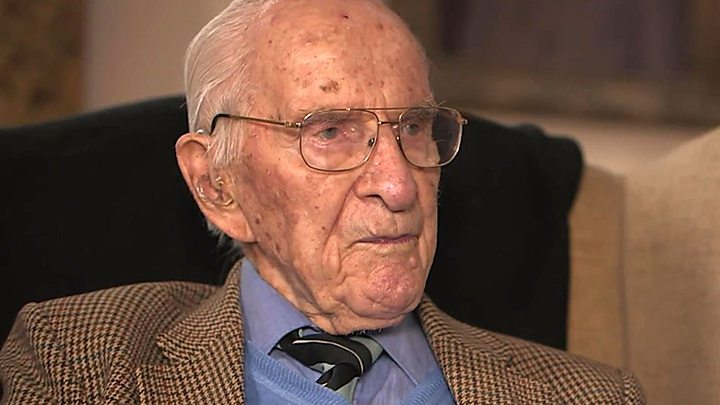Dr William Frankland, a British immunologist who transformed the world’s understanding of allergies, has died aged 108.
His pioneering work included developing the idea of a pollen count to help hay fever sufferers.
Dr Frankland, whose medical career spanned 70 years, was known as “the grandfather of allergy”.
As a British army doctor in World War Two, he spent three-and-a-half years in Japanese prisoner of war camps.
Historian Dan Snow tweeted he would never forget meeting Dr Frankland, who he called “one of the greatest Britons”.
Prof Adam Fox, president of the British Society for Allergy and Clinical Immunology, said he was “an enormous inspiration to many”, adding that he would be “sorely missed but very fondly remembered”.
Dr Frankland, known as Bill, gave an interview ahead of his 108th birthday on 19 March, saying his longevity was down to luck.
He said: “I’ve come close to death so many times – from the 1918 Spanish Flu pandemic, three-and-a-half years spent as a Japanese prisoner of war, to experiencing anaphylaxis following a tropical insect bite – but somehow I’ve always managed to miss it and that’s why I’m still here.”

Media playback is unsupported on your device
He also revealed that his birthday celebrations were being affected by the coronavirus outbreak as his care home had closed its doors to visitors.
“My birthday this year will be quite different,” he said. “I’ve been given a special request to have two of my children visit for a short while, but they will have to keep at a safe distance.”
Dr Frankland, who was made an MBE in 2015 for his services to allergy research, is survived by four children. His wife Pauline died in 2002.
Born in Battle, Sussex, in 1912, Dr Frankland grew up in the Lake District. He went on to study medicine at the University of Oxford and worked at St Mary’s Hospital in Paddington, London, before World War Two intervened.
He signed up to the Royal Army Medical Corps (RAMC), but spent over three of the six years he spent in the Army as a prisoner of war in Singapore.
During his 70-year long career in medicine, based mostly at St Mary’s Hospital, he worked for Sir Alexander Fleming, who discovered penicillin.
His career in immunology began in the 1950s at St Mary’s, where he worked with patients who suffered from seasonal hay fever.
He set up a pollen trap on the roof of the hospital to identify different types of pollen in the air and, along with his team, created a pollen count system that led to daily pollen reports in the media.
